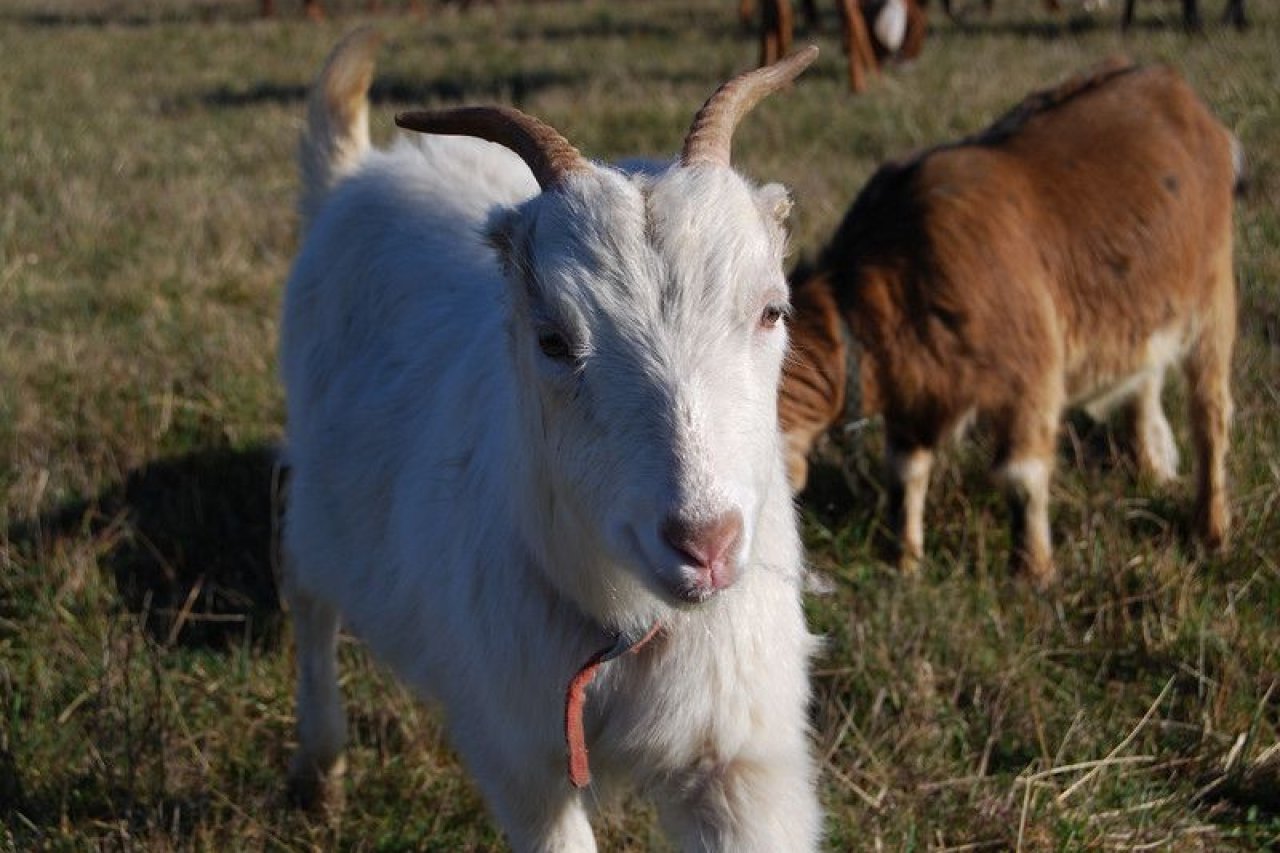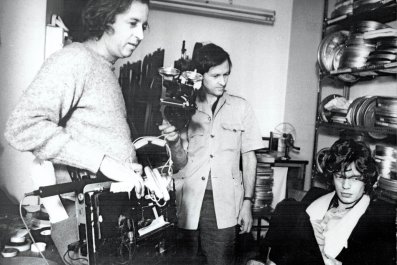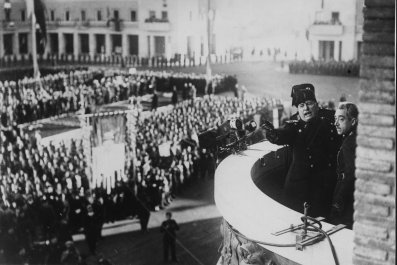Due to the shortage of American manpower during World War I, President Woodrow Wilson relied on sheep power to cut the White House lawn. In the 1920s the Philadelphia Phillies became their own farm team when their groundskeeper, desperate for help to maintain the Baker Bowl playing field, hired two ewes and a ram to trim the grass.
And just yesterday, Amazon began renting out goat mowers. The online company is offering "goat-grazing" services as part of the beta trial of its new Home Services campaign that provides everything from sink installations to yoga instruction. (At the moment, you can only rent a goat from the online retailer.) Each rental comes with a money-back "happiness" guarantee.
It turns out goats are better at clipping than sheep. According to Modern Farmer, it would take 83 sheep to mow 50,000 square feet of grass, but only 38 goats. Goats are also ruminants: Their four-chambered stomachs can process much more than grass, including many plants and substances that would be toxic to other critters.
Amazon has been pro-goat since last year, when Amazon Japan formed its own "weeding corps" of 30 to 40 goats, each with its own personal Amazon employee ID to work on the lawn outside the company's distribution center. Goats and Amazon are a natural pairing because the company is based in Seattle, a city known for its state department-funded goat browsing on public underbrush. Goats can go places heavy farm machinery can't, are cheaper than their human counterparts and leave a smaller carbon footprint. In fact, their hoofprints are cloven.
The Amazonian goats of Seattle are owned by Tammy Dunakin of Rent-a-Ruminant on nearby Vashon Island. Dunakin is prominent in goat-mowing circles, having appeared in a Colbert Report segment titled "People Who Are Destroying America: Landscaping Goats." Stephen Colbert alleged that her operation was ruining the livelihoods of human landscapers. "I will not be satisfied until goats are doing all the landscaping jobs in this country," she joked to his correspondent.
Dunakin, 53, has cropped brown hair, pale blue eyes and, on her pickup, bumper stickers that say, "THE VOICES IN MY HEAD TELL ME TO BUY MORE GOATS" and "I SUFFER FROM MULTIPLE GOAT SYNDROME (CUZ ONE GOAT IS NEVER ENOUGH)." While talking goat, she sways to and fro, perhaps because she's constantly being nuzzled. The moment we enter her pasture, I'm greeted by a horned and bearded buck named Ernie and his brown- and black-striped buddy, Franz. The rest of the herd surrounds us, heads rubbing against our coats. "They give great massage," Dunakin tells me.
Which may provide a second service to offer on Amazon.

Dunakin launched Rent-A-Ruminant in 2004 with 10 goats. "They looked bored, so I put their little butts to work," she recalls. She built the business "one goat at a time," and today has a herd of 120, all non-milking nannies (therefore, no chèvre) and castrated billies (therefore, no kids). They're all rescue goats—unwanted pets and slaughterhouse refugees. "A lot of them come from bad situations," Dunakin says.
Her clients range from the state's Department of Transportation to nuclear sub bases. Mostly, the beasts are used to clear out unwanted blackberry bushes. When they're not helping the environment, they're sometimes fighting crime by munching the mugger-concealing brush and weeds in high-crime areas. Alas, goats don't eat drug paraphernalia or tin cans. "Only paper and vegetation," Dunakin tell me. Cardboard political signs are particular favorites.

She hopes to become the Starbucks of goat rentals, with outposts all over the world. She already runs an affiliate license program where goat herders can apply to run a rental franchise through her outfit. She's helped affiliate goat herders as far away as Australia.
The smallest number of her goats rentable on Amazon is 16; the largest, the entire herd of 120. She's now weeding through nearly 100 requests for Amazon rentals. Before she accepts her first commission, she must drive to the site, size it up and make sure there's nothing potentially poisonous. She has turned down requests to bring the herd to bat mitzvahs and children's birthday parties. "I'm not a petting zoo," she explains.
On this afternoon at the Vashon Island pasture, I watch Franz and Ernie brush against each other; Huey, Dewey and Louie butt heads; and Spider-Man, Batman and Superman duel horns in the grass. I wonder how these troublemakers actually get work done. "Goats are ADHD. But they're problem-solvers," Dunakin says. "They work on their own time, goat time." Even on 24-hour shifts, they "get a lot of coffee breaks and naps." Dunakin is assisted by her dogs (Maddie, an Australian kelpie, and Pearl, a border collie) who circle and nip at the goats' heels, keeping them in line.
What would happen if the goats were set loose in Amazon's book division?
Goats are book lovers, she says. In fact, they devour them.








































